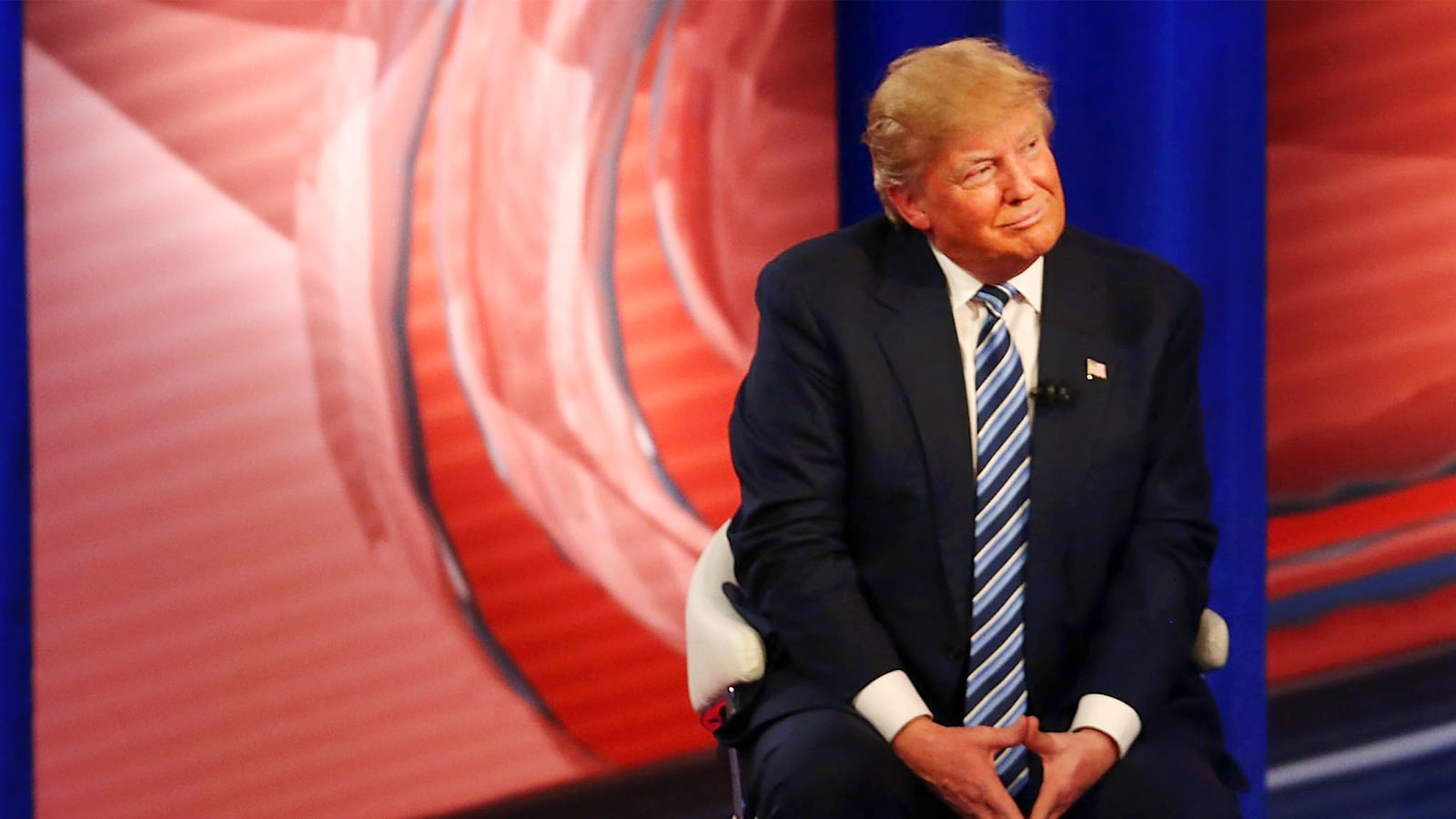Donald Trump has tapped two telecommunications lobbyists to head his FCC transition team. That’s bad news for net neutrality, the policy that says internet service providers must treat all data equally.
Last Monday, Trump named Jeffrey Eisenach and Mark Jamison to oversee the transition of Federal Communications Commission. Eisenach and Jamison, both are on staff at the conservative at the American Enterprise Institute, and both former lobbyists for major telecommunications companies. Both are vocal opponents of net neutrality.
Neither is a lock for the next FCC chair. But Trump, whose only public stance on net neutrality came in a confused 2014 tweet, is unlikely to champion equal internet access in his administration.
Net neutrality policies prevent internet service providers from imposing blocks on certain websites or activities. Without these protections, an internet company like Time Warner Cable could decide to charge different rates for different kinds of data access, or provide faster or slower internet connections to their preferred sites, as was the case in 2007 when Comcast was discovered to have deliberately slowed access to torrenting sites. In February 2015, the FCC ruled to reclassify internet service providers, barring them from deliberately slowing access to specific sites.
Trump’s public stance on net neutrality is vague. His only public statement is a 2014 tweet against President Obama’s push for net neutrality protections, which Trump said would “target conservative media.”
“Obama’s attack on the internet is another top down power grab,” Trump tweeted. “Net neutrality is the Fairness Doctrine. Will target conservative media.”
The tweet suggested that, as of November 2014, Trump did not know what “net neutrality” meant. The Fairness Doctrine, eliminated in 1987, was an FCC regulation that required television broadcasters to air multiple perspectives on controversial topics. The now-defunct doctrine has nothing to do with net neutrality, which requires internet service providers to treat all internet traffic equally, and does not regulate a website’s content, conservative or otherwise.
Trump may be murky on the details of net neutrality, but his new FCC transition team is not. Despite Trump’s campaign promises to “drain the swamp” of lobbyist influence in politics, both Eisenach and Jamison lobbying against net neutrality measures when they worked for Verizon and Sprint, respectively.
An August installment of the New York Times’s “Think Tank Inc.” series highlighted Eisenach’s dueling interests as a lobbyist. Under his mantle as policy director at the conservative American Enterprise Institute’s technology center, Eisenach spoke before Congress and lobbied FCC lawyers on the dangers of net neutrality. But Eisenach was also a paid consultant for Verizon, a major telecoms company opposed new net neutrality regulations. “Don’t Make the Internet a Public Utility,” he argued in a 2015 op-ed in the Times in which he argued against net neutrality, without disclosing his work as a paid Verizon consultant.
Jamison, a fellow at the American Enterprise Institute, has his own ties to the telecoms industry. A former manager of regulatory policy at Sprint, Jamison has been a vocal critic of net neutrality and of the FCC, itself. “It’s time to move beyond net neutrality,” he argued in a July blog post, arguing that “net neutrality in the US is backfiring.”
Jamison weighed disbanding the FCC in an October article titled “Do we need the FCC?” (Conclusion: “The answer is ‘no, but yes.’”) In the article, he condemned accused the “cottage industries formed in support of net neutrality” of benefitting from Obama-era net neutrality regulations “at the expense of customers, who ultimately bear the brunt of regulatory rent-seeking.”
“Telecommunications network providers and ISPs are rarely, if ever, monopolies,” he wrote, although the recently announced merger of Time Warner and AT&T to create the country’s largest entertainment company has already been criticized as a monopoly-in-waiting.
As members of Trump’s FCC transition team, Eisenach and Jamison will be responsible for setting the agency’s course in the coming months. That means crafting policy for the Trump administration, which currently has no public stance on net neutrality, other than a broad pledge to repeal regulations.
It’s unclear whether those doomed regulations will include the 2015 FCC rules, which require internet providers to protect equal internet access. But under the helm of two former telecommunications insiders who already oppose net neutrality, the policy’s future looks grim.






